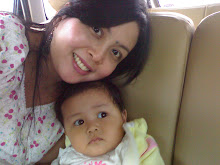Challenging times
| AS ANY NEW MOTHER OR FATHER QUICKLY LEARNS, newborn babies are genetically programmed to save up their number twos until they've been dressed in their best outfit and buckled in the car seat in preparation for an outing. And more than one mother has wondered whether the baby's father has trained his offspring to hold on tight until the minute Mum walks back in the door from the shops. |
| By the time your baby is three or four months old, you'll have become intimately acquainted with his by-products in a manner that would have sent you squeamish before you became a parent. What's even more frightening is that you really won't mind - in a bizarre way an energetic digestive system becomes a source of pride for parents fascinated with the minutiae of their baby's bodily functions. Eavesdrop on any coffee-group and you'll hear plenty of "my daughter's more prolific than your daughter" one-penmanship from all the doting mums. |
| From the terrifyingly black, sticky me conium that passes during the first few days to the lurid, curdled liquid of a breast-fed newborn, the variations you'll be faced with are as unique and creative as a toddler's imagination. If you'd ever wondered where the color keratin yellow got its name, you won't be wondering for long. Just wait until you start your baby on solids such as carrots, spinach, blueberries and beetroot - the rainbow hues he comes out with will rival any finger-painting he performs up top. |
| If you're breastfeeding, it's natural for your baby to bless you with a small gift at every nappy change, and it's equally natural for him to evacuate violently only once every few days. Every-nappy mums might wish they didn't have to face the daily lottery of when to risk bare-bottom time, but once-a-week mums know that the payoff for several days off is that when it arrives it is explosive. |
| If you're left holding a leaky baby, make sure the waistband is fastened securely and the little leak guards around the legs are in place. Try using a larger size, or swapping to a more absorbent brand of nappies. |
| Rest assured that, despite your fumbling efforts in these early weeks, you'll soon have the technique down pat, planned like a military operation with wipes on hand and the new nappy unfolded at the ready. You'll be able to do it with your eyes closed - a not-unlikely scenario at three in the morning. |
| Take heart, also, that the entire business will get easier (or should that be harder?) as your baby starts on solids or formula. This is a source of great relief to some parents, until the awful truth dawns on them that the more adult consistency is unfailingly accompanied by a more adult odor. |
| By the time your little angel is rolling and crawling, your parenting skills will be finely honed to the point at which you can simultaneously hold up his wiggly little legs, bat his inquisitive little hands away from the danger zone, wipe his bottom, whip the old nappy away, slide a fresh one into place, rattle a distracting device in his face - oh, and fend off the older sibling who's decided to investigate the dirty nappy in the meantime. Give it a few more weeks and you'll probably be able to talk on the phone at the same time. |
| At this stage safety is paramount, and the best place to change a squirming six-month-old is on the floor. If you find it easier to wedge him into a changing table, make sure you use the belt every time. |
| If you find yourself chasing your little adventurer around the house, waving a nappy at his half-wiped bottom, try distracting him with a special toy or a colorful poster on the wall during those crucial between-nappy seconds. Pull funny faces, sing a song or play peek-a-boo games. If all else fails, co-opt someone else, such as an older child, to distract the head while you deal with the working end. And remember, as messy as it will undoubtedly get, it's only a stage you're going through! |

No comments:
Post a Comment